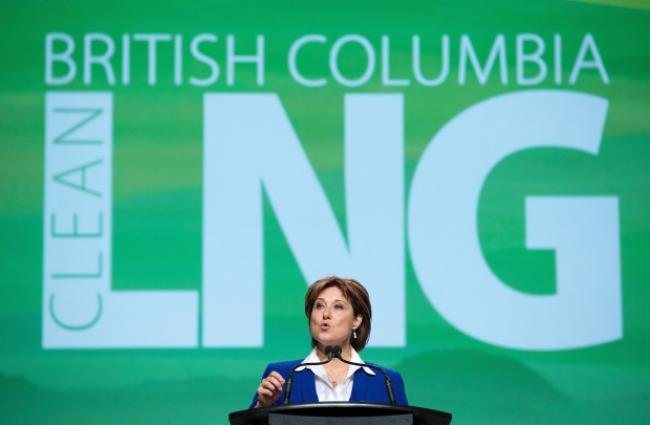Articles Menu

More than 100 Canadian and U.S. scientists have concluded a federal environmental assessment of the $12-billion Pacific NorthWest LNG terminal is "scientifically flawed" and represents an "insufficient base for a decision."
The scientists, in a letter dated March 9, are urging Prime Minister Justin Trudeau's Liberal government to reject a Canadian Environmental Assessment Agency draft report released last month that found the project would not adversely affect aquatic life, including salmon. The project has an estimated cost of $36 billion if development to extract gas in northeast B.C. and a pipeline to the coast are included.
While the federal assessment found the project would result in an increase in greenhouse gases and would harm porpoises, the conclusion that salmon would not be harmed, given planned mitigation measures by a consortium led by Malaysian statecontrolled Petronas, was considered a critical finding.
That's because opposition from First Nations, environmental groups and some area residents has focused on a concern the project will harm eelgrass beds on Flora Bank. The bank, adjacent to Lelu Island where the terminal will be built near Prince Rupert, is considered prime fish-rearing habitat, including in a federal study dating back to 1973.
The scientists said, in the letter addressed to Environment Minister Catherine McKenna and copied to Trudeau, that scientific flaws in the draft report include: not accurately characterizing the importance of Flora Bank for fish; conclusions on the lack of harm to species such as oolichan without evidence; and a disregard for studies that were not funded by the company.
"Five decades of science has repeatedly documented that this habitat is not representative of other areas along the north coast or in the greater Skeena River estuary, but rather this is exceptional nursery habitat for salmon that support commercial, recreational and First Nation fisheries from throughout the Skeena River watershed and beyond," says the letter signed by the scientists, including Moore.
The scientists who signed the letter - largely fisheries biologists and ecologists - come from across Canada and the U.S. states of Alaska, Washington, Oregon, California, Montana and North Carolina.
Several former federal and provincial scientists also signed the letter, including Otto Langer, former head of habitat for the Department of Fisheries and Oceans, as well as scientists affiliated with environmental groups. The scientists also said there had been inadequate consideration of cumulative effects, such as destruction of shoreline habitat, acid rain and accidental spills.
Also of concern is that a plan by the company to offset habitat loss by improving habitat in other areas has not been proved to be helpful and could do more damage, said the scientists.
Public comments on the draft report close March 11, after which CEAA will produce a final report.
The federal government has the final say on the project, already approved by the B.C. government, which hopes to build a new natural gas export sector to Asia. The consortium - which includes investors from China, India, Japan and Brunei - had given conditional approval to the project nine months ago, pending federal go-ahead.